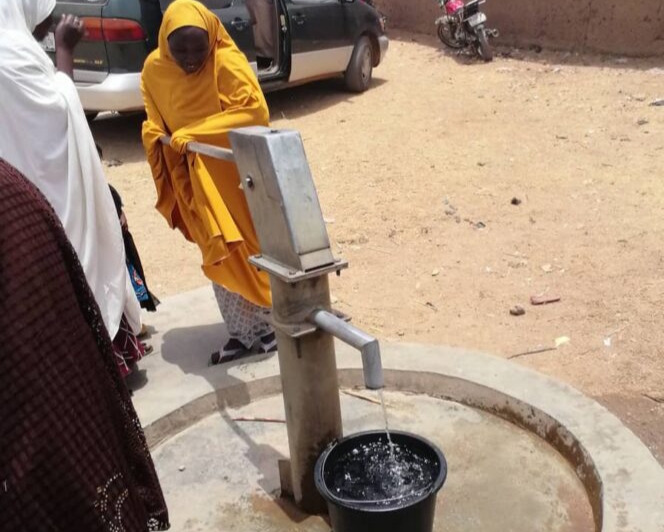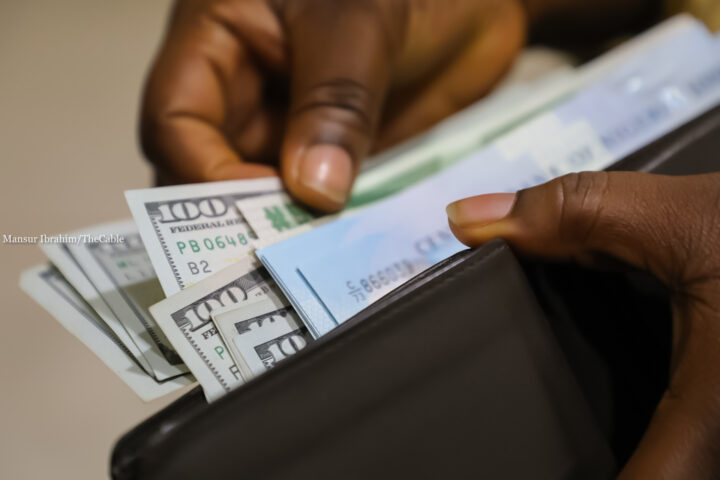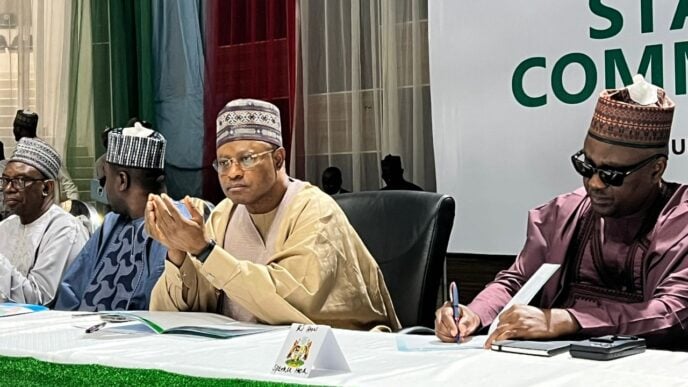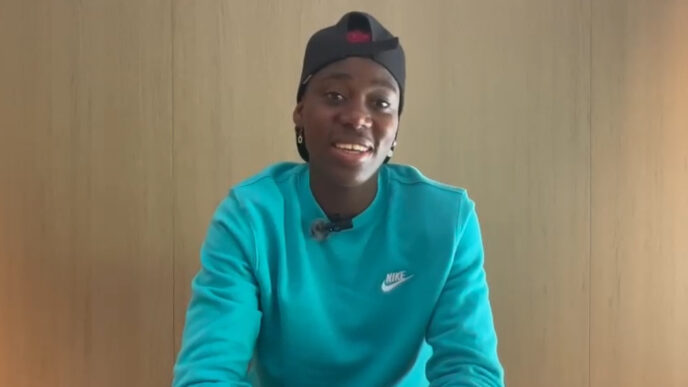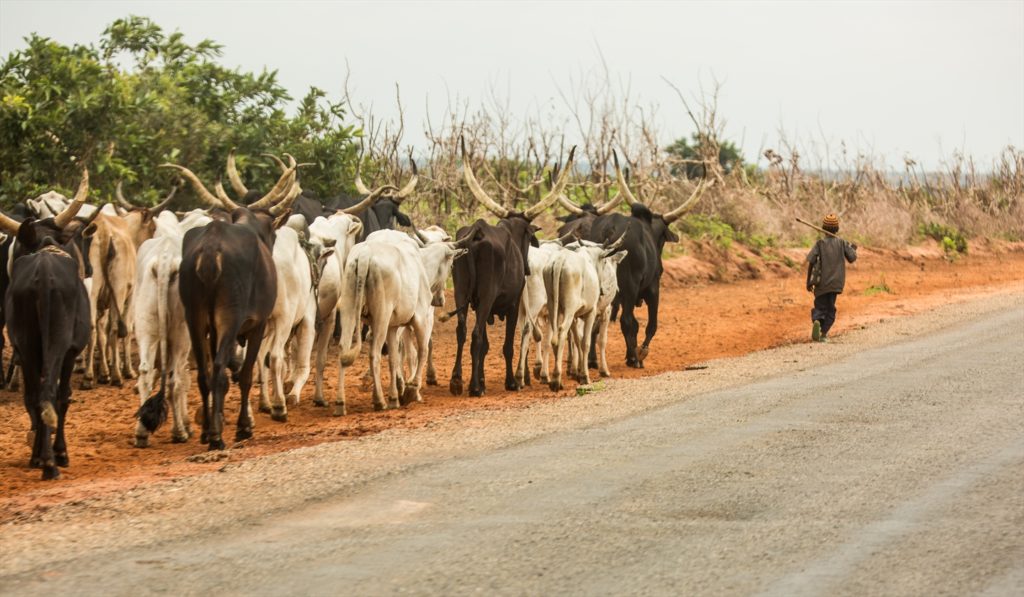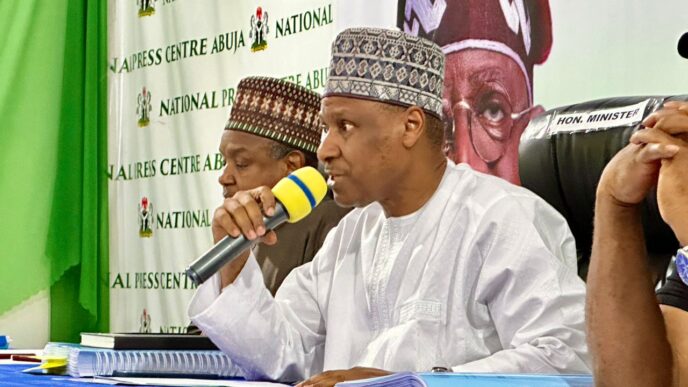Each time the memories of the 2014 Boko Haram attacks flash across Ezra Yohanna’s mind, he finds it difficult to let the troubling thoughts go immediately. For about nine months – between September 2014 and May 2015, Boko Haram terrorists held sway in Michika LGA of Adamawa state, north-east Nigeria.
Yohanna, a former chairman of persons with disabilities (PWDs) in Michika, and his family escaped the marauding terrorists; but his friend, Maidi Ayuba, a PWD, was not so lucky.
Yohanna said he is usually moved to tears whenever the thought of Ayuba, who was killed by the insurgents, crosses his mind.
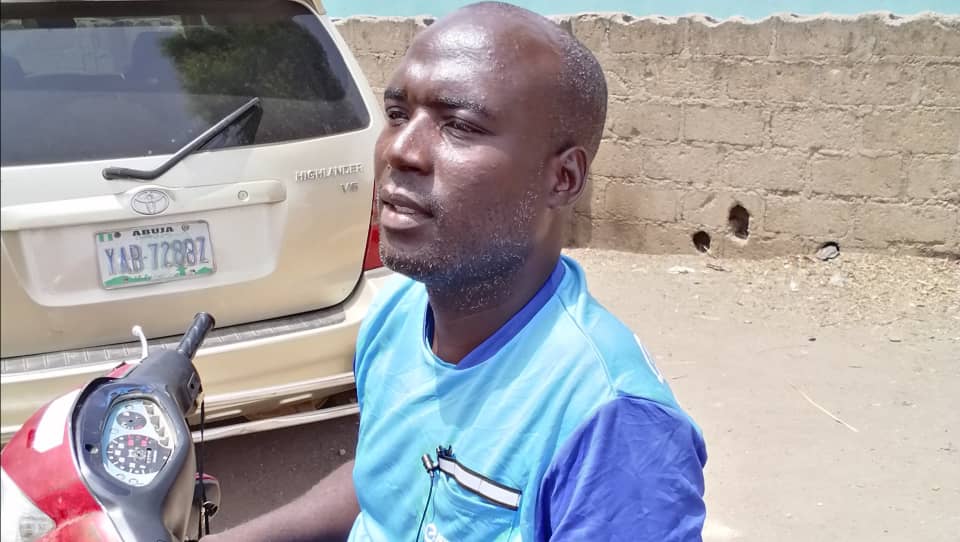
“People with disabilities suffered during the insurgency. We only survived the attacks with the grace of God because we could not escape like the able-bodied people,” Yohanna recalled.
Advertisement
When Boko Haram terrorists launched repeated attacks on Michika in 2014, it was a survival of the fittest. Yohanna, a civil servant at the Michika LGA, said the terrorists wreaked havoc in the community for about eight months. They killed, maimed, and abducted residents at will.
Many residents were displaced and ran as far as Cameroon, a neighboring country, as the terrorists destroyed their homes and social facilities, including schools and healthcare centres.
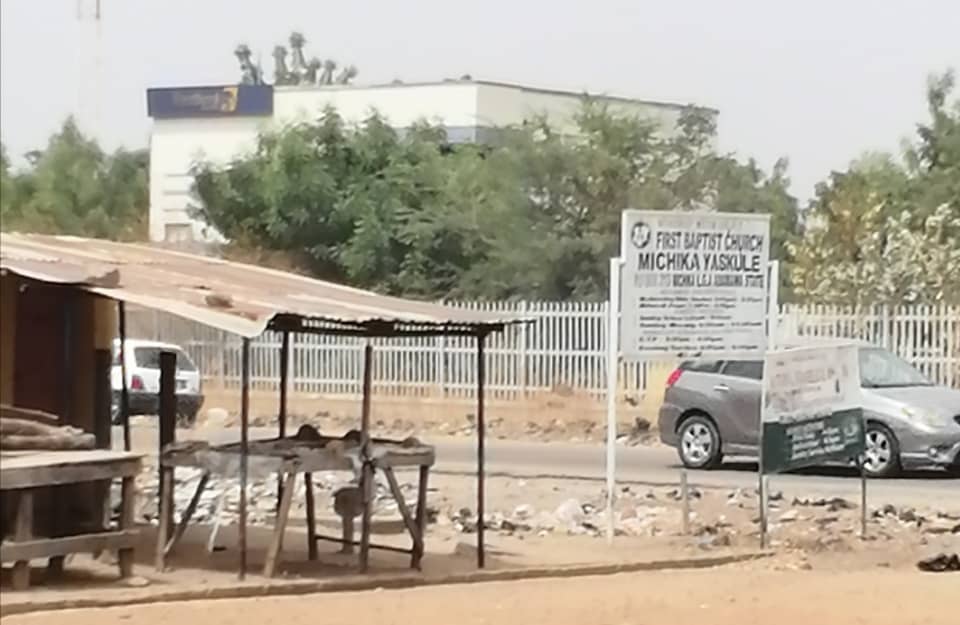
“Members of our association were adversely affected during the insurgency because we could not escape like the other people; but by the grace of God, we survived,” he told TheCable.
Advertisement
LIFE COMING BACK 10 YEARS AFTER
Before the interventions by OXFAM and other development organisations, life was difficult for residents of Michika since their return to the community after the insurgents left the area.
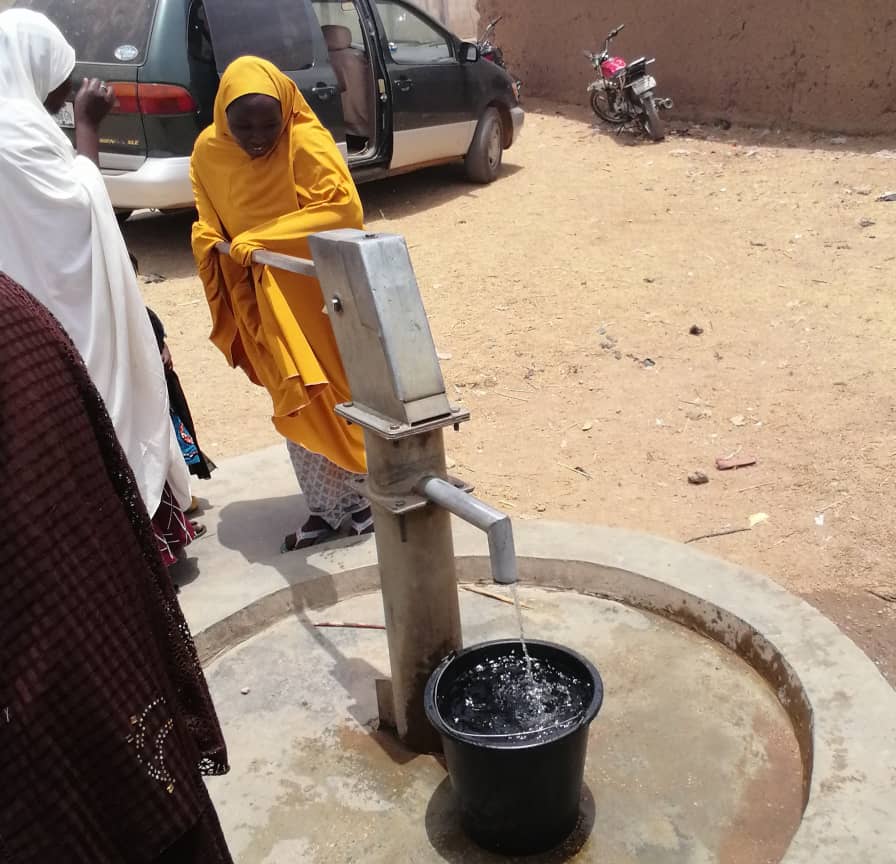
It was hard for children to go to school, and women could not access healthcare or even cultivate their farms.
Advertisement
Residents are picking up what is left of their ruins and making meaning out of life with the support of international charities like OXFAM.
Almost everywhere you go in Michika II, you will meet villagers who will tell you how a new project or rehabilitation – a road, healthcare centre, borehole, rebuilt schools, skills acquisition centre – is making a difference in their lives.
All this in a community where insurgency didn’t end until May 2015. It’s not as if Michika has been completely transformed from a conflict-ridden town to a modern one.
Since the insurgency, residents have lived without electricity, and no bank is presently operating in Michika.
Advertisement
But there has been real progress, and much of the credit must go to people and agencies like OXFAM.
When donor agencies began to return to the LGA after the insurgency, they found a community in ruins.
Advertisement
Their first task was to help rebuild the shattered infrastructure. But it soon became clear that it was more than just clinics, schools, and water that were needed – it was vital to create a social cohesion and governance system that would support long-term development and “win the peace”.
Through communal efforts and integration, Michika is finding its feet. Using the Ward Development Support Committee (WDSC), residents have started rehabilitating damaged amenities.
Advertisement
Damaged schools and healthcare centres, as well as boreholes, are being fixed and put to use.
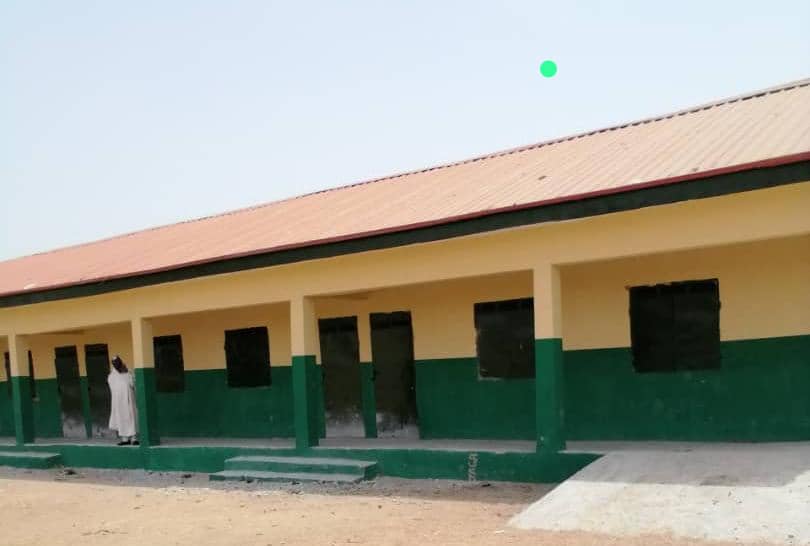
Ibrahim Tijjani, secretary of WDSC in Michika II, said they have bought drugs, filled first aid boxes in schools, repaired six boreholes in the communities, and supported PWDs with cash gifts to start their lives.
Advertisement
“Children in school don’t have access to clean water. They are drinking from a pond. So, we are planning to renovate a damaged borehole in their school,” Tijjani says.
“PLAN International assisted us in repairing the only female secondary school in the community, which was destroyed by the insurgents. The fence was repaired. We also bought chalk for schools, and we visited primary healthcare centres and gave items to those in the hospitals to support them.”
OXFAM launched “improving social cohesion through community development planning” to strengthen the governance system and social cohesion in Michika.
The project is funded by the German Federal Ministry for Economic Cooperation and Development (BMZ) and supported by the Deutsche Gesellschaft für Internationale Zusammenarbeit (GIZ) GmbH.
Yohanna is full of praise for the development organisations for helping residents to stabilise and integrate after returning to their community.
“They helped our people with wheelchairs and also financially, they supported us,” he said.
He commended the first lady of Adamawa for coming to the aid of the PWDs in the state.
“She has donated motorcycles and even cars,” he added.
Like Yohanna, Gwamna Zakawa, village head of Michika II, is elated that development partners are helping to restore life and damaged facilities in the community.
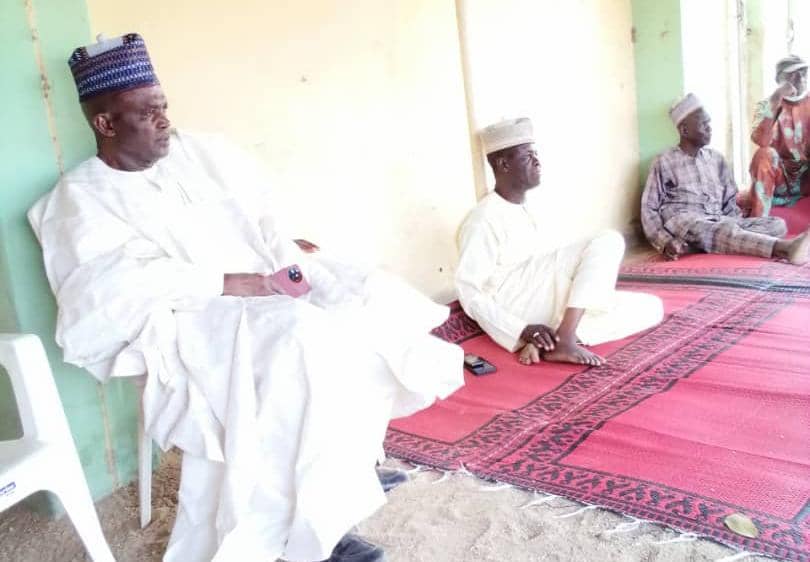
“After the insurgency, NGOs have done a lot because we could not have done all these things if not for them,” Zakawa said.
“Our people are very happy about it. It is better to teach someone how to fish than to give him fish to eat.
“Most of the schools were burnt down. But after the insurgency, the NGOs have helped us renovate the schools and even built new classes. Almost all schools in Michika, hospitals, and residential apartments were damaged.
“I’m very happy and appreciate the efforts of WDSC. I know we will get more interventions for more projects.”
Bake Ibrahim Wanjeje, chairman of WDSC in Michika, who is coordinating local efforts to resuscitate the community, commended the charity organisation for its intervention.
“During the insurgency, everyone ran away, and with the help of God, when we came back, we had some NGOs like OXFAM and JIZ; they really helped us a lot,” he said.
“They introduced the concept of self-reliance to us so that everyone could work by themselves and raise our community. We thank God for such NGOs. When they came, they taught us a lot of lifestyles.
“The problem here in Dondomi and Kwasabaye communities is that there is no presence of government there. But with the help of WDSC, we are now trying to build health centres where everybody can get help, especially when a woman wants to give birth.
“And it takes hours before we can get to where there is community. Now we have purchased land where we can build a primary healthcare centre.”
Wanjeje said the Adamawa state government has done a lot to restore security in Michika.
“We appreciate the state government for providing security. Now, our women can go to the farm without fear of being attacked or abducted,” he added.
About distrust and cohesion, Gwamna said there was a lot of distrust and mutual suspicion among residents after the insurgency.
However, one of the greatest achievements of OXFAM intervention is the unity and renewed level of trust in the community.
People who were unable to sit together and make collective decisions are now involved in designing programmes for their community.
“Actually, when we returned after the insurgency, there was such a problem all over the place,” the village head said.
“You would see a neighbour not eating his neighbour’s food and even travelling on the same road. But now, no more religious or tribal issues. We are now one.”
Wanjeje corroborated Zakwana on this. He said there is unity and companionship among the residents now because the insurgency “caused bad blood”.
“But with the help of God almighty, we are now trying to reactivate ourselves and become the way we were before,” he said.
“Now there is unity and cooperation among Muslims and Christians in Michika LGA. They are now helping one another in so many ways. Let’s say in our WDSC there is a lot of cooperation and there is unity among ourselves.
“Now we have forgiven everything that happened, and we are not praying for such things again.”
GRANTS FOR DEVELOPMENT, INITIATIVES FOR SOCIAL COHESION
Buoyed by its determination to help victims of insurgency in north-east Nigeria rebuild their lives, OXFAM organised a grant award ceremony for the WDSC on March 2.
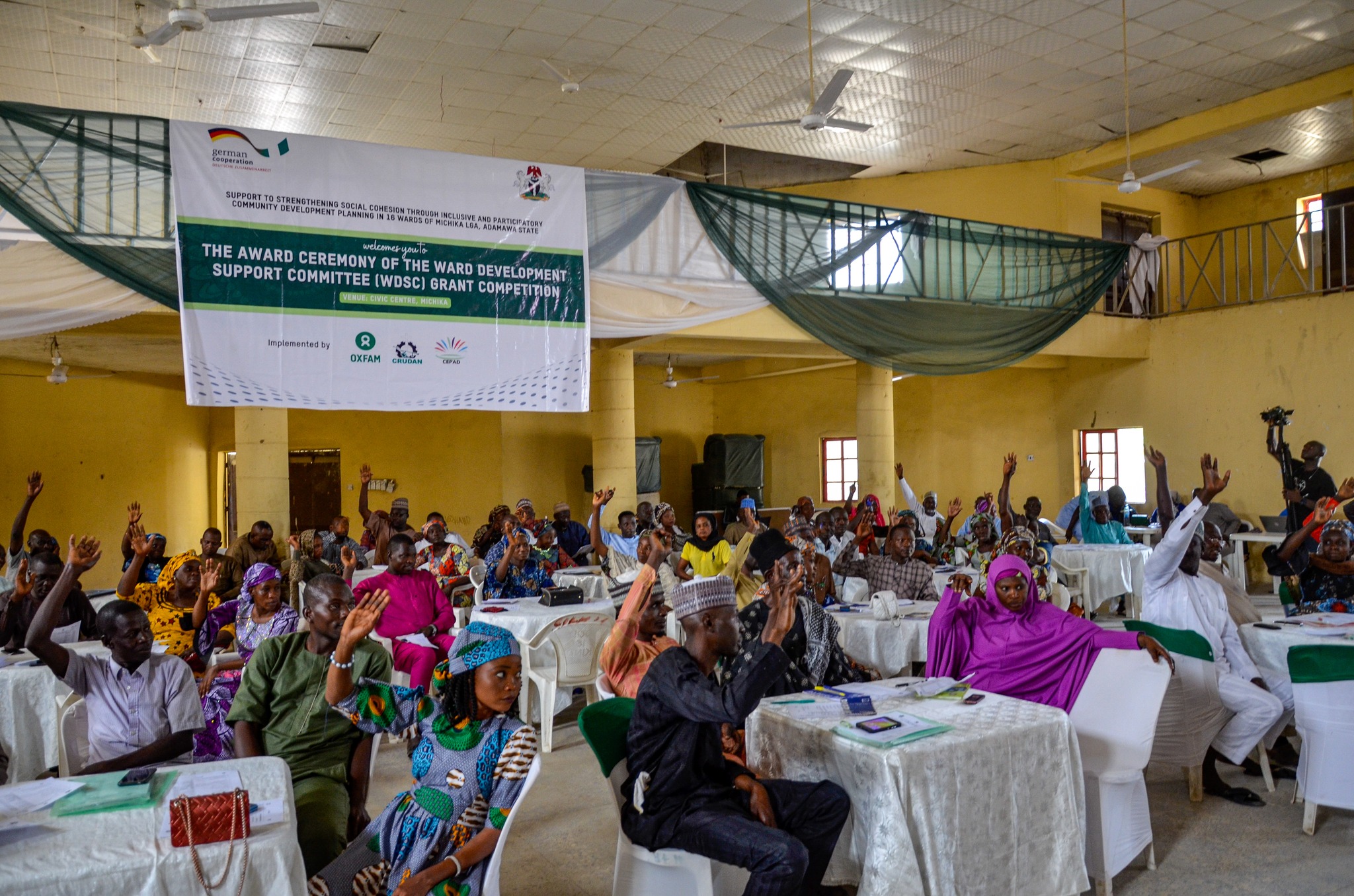
Sixteen community groups from different wards submitted proposals for the grant. It is a pilot project for Adamawa citizen engagement and participatory planning policy. Michika is the first LGA where the policy is being implemented.
Enoch Bamaiyi, the project coordinator, said the goal of the grant award was to enhance social cohesion among the locals.
“To propel grassroots initiatives that enhance social cohesion, the competition attracted 16 enthusiastic participants from various communities across the Michika local government area,” Bamaiyi said.
“These groups, driven by a shared vision of positive change, presented innovative community-led projects designed to address local challenges and promote unity within their neighbourhoods.”
During the ceremony, OXFAM awarded N4,050,000 to the deserving groups to provide crucial resources to bring their community projects to fruition.
Bamaiyi explained that the grant award ceremony catalyses collective action and collaboration to inspire communities to work towards common goals.
“By empowering local initiatives, OXFAM aims to build sustainable solutions rooted in the needs and aspirations of the people we serve, thus enhancing social cohesion,” he said.
The WDSC is the product of a series of community development planning sessions between residents and OXFAM officials. Each ward has a development support committee.
“From those sessions, not less than 94 priority developmental needs of the people of Michika have been identified. And these 94 needs are spread across 10 different sectors, ranging from agriculture and food security to physical infrastructure, economics and livelihood, social protection, and climate,” the project coordinator said.
Zakawa, whose community came second in the grant award competition and was given N750,000, said the money will be used to execute projects.
“We will do more projects because we have a lot of projects, especially drainage, and in some schools, we have broken chairs that we have to amend,” he said.
“The money, we will not squander it. We will use it judiciously, and we have to see that our community members safeguard the projects.”
Add a comment
